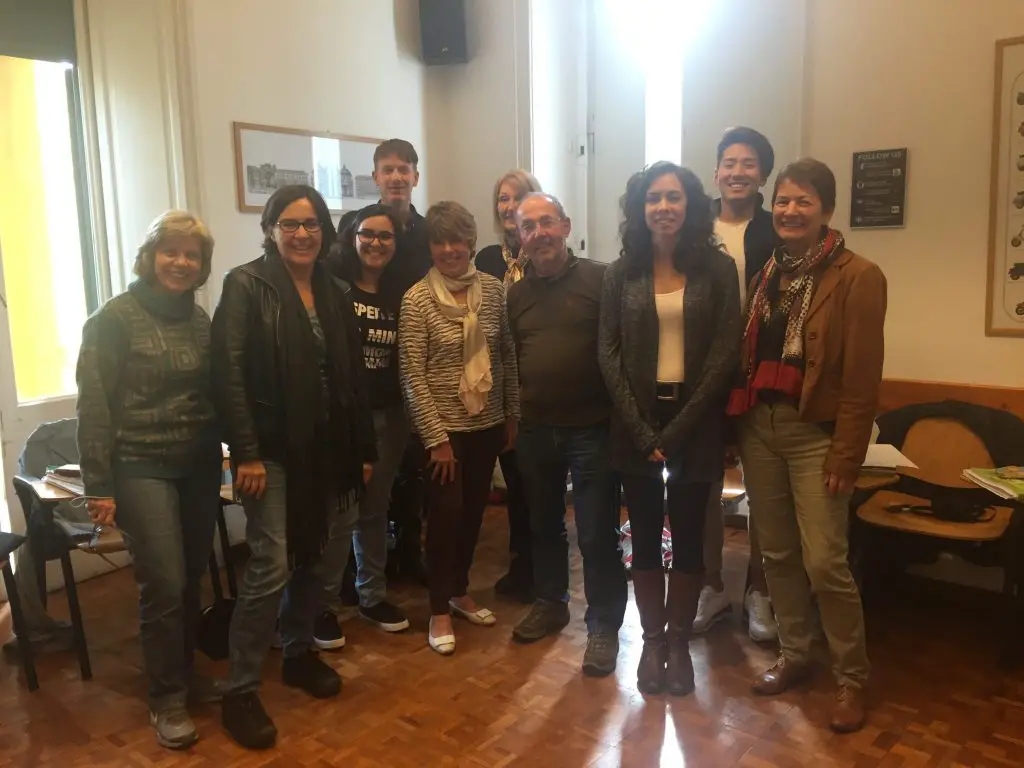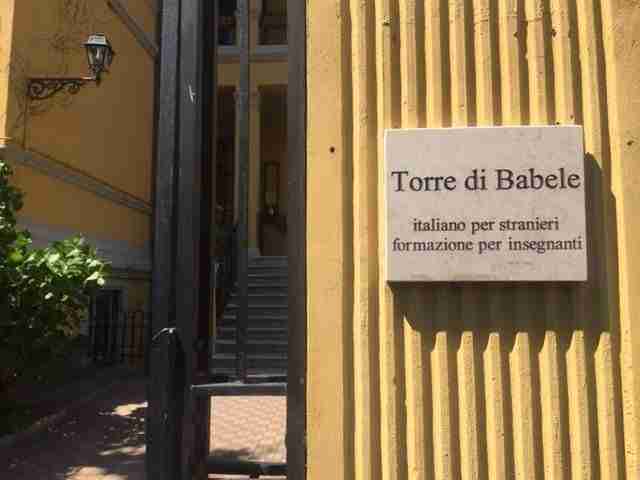We may earn a commission from links on this page. Learn more
I have a confession. Despite having lived in Italy for nearly three years and having studied Italian off and on for a number of years, I have a long way to go before I can consider myself fully fluent in the language.
There has been one time, however, when I felt really confident about my Italian skills. That was the time I took an Italian immersion course.

Last fall, I took a week out of my regular schedule to enroll in a one-week full immersion course at Torre di Babele, an Italian language school in Rome. Time-wise, I could not afford to take more than a week of lessons. But even one week of lessons helped me build a stronger foundation in Italian. Plus I was able to meet other like me who wanted to go deeper in their cultural understanding of Italy by studying Italian as a foreign language.
My Italian immersion course classmates were a diverse group of eager learners, most of whom had built-in Italian language classes into their Italy vacations. Our group of about 10 students ranged from 20-something students to retirees. And we came from all over: Brazil, Japan, China, Germany, England, Sweden, Switzerland, and the U.S.
For about four hours every morning, we did workbook exercises, listened to our professor’s lessons, and broke out into groups for reading comprehension and discussion. Beyond the classroom, when we had our coffee break and lunch, we continued to speak to one another in Italian even though most of us shared English or another common language.
Italian was our lingua franca. We were immersed in the language both inside and outside of school.
As we had all tested at about the same level, we felt comfortable and confident speaking to one another in Italian. And our different backgrounds also assisted us in our learning of Italian. If I didn’t know how to say one word or phrase, my classmate often did and vice versa.
Up until that point, we had learned Italian through the lens of our own interests, means, and experiences. Now, through daily conversations in class and in the community, we were able to expand our own language skills through learning and teaching one another.
Our teachers at Torre di Babele, all of whom were qualified to teach Italian as a foreign language, were absolutely essential, of course. But the dynamic of a classroom full of motivated adult students created a rich experience that would have been difficult to duplicate in intensive Italian classes back home.

I’m the oldest one in this group, hence the need to cover my wrinkles. 😉
Another component of my Italian immersion week was a one-on-one conversation lesson every day after lunch. My instructor Sergio and I talked about everything — family; friends; Neapolitan, Roman, and Sicilian food; soccer; music; touring around Rome and Italy — entirely in Italian, pausing only so I could find the right word or phrase or so Sergio could point out a grammatical tweak or tip.
During my Italian immersion week, I learned my language limitations. But I also learned that I knew much more than I thought I did. I have the vocabulary and the ability to speak Italian — if not fluently, then at an increasingly improved level.
Italian Language and Immersion School in Italy
If you love learning Italian, meeting new people, and can spare the time, I highly recommend booking some time at an Italian language school. Most language schools also assist with finding inexpensive, longer-term accommodation and planning tours and outings to restaurants and local attractions. So this is a unique way to book a “package vacation” that goes beyond the cookie-cutter tours your travel agent may offer.
Below are some language schools in Italy that offer immersion lessons for a week or longer.
Italian Language Schools in Rome/Lazio
- Torre di Babele (Rome)
- Borgolingua (Sermoneta)
Italian Language Schools in Tuscany/Umbria
- Il Sasso (Montepulciano)
- Comitato Linguistico (Perugia)
Italian Language Schools in Campania/Puglia/Calabria
- Sant’Anna Institute (Sorrento)
- Villa Dante (Tropea)
- Solearte (Lecce)
Italian Language Schools with Multiple Locations in Italy
- Scuola Leonardo da Vinci (Florence, Siena, Milan, Rome)
- Dante Alighieri (Siena, Viterbo, Ischia)
- ASILS – Association of Schools of Italian as a Second Language has a searchable database of other schools throughout Italy.

This month, the Italy Blogging Roundtable wrote our posts using the prompt “foreign.” Here are the posts from those who were able to participate.
- Jessica – The 5 Letters of the Alphabet Banned by Mussolini
- Gloria – Foreigners in Tuscany
- Alexandra – Refugees in Tuscany: New Book Questions Preconceptions
- Georgette – 50 Shades of “Foreign” in Florence, Italy
For more of my Italy Roundtable posts plus links to my colleagues’ Italy blogs, click here.
Last Updated on 3 years ago by Melanie Renzulli | Published: April 21, 2017

